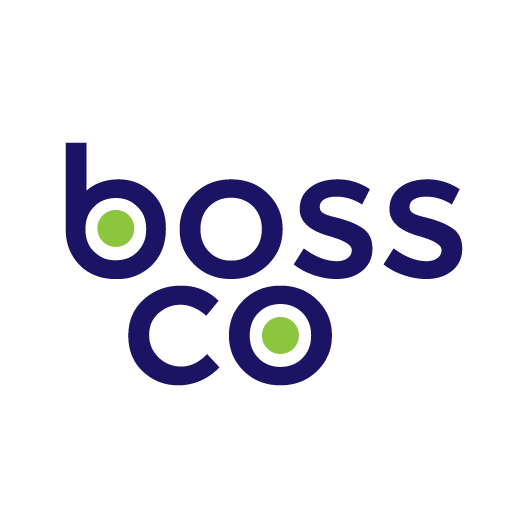Comprehensive Salesforce DEV101 Curriculum Overview
Meta Title:
Comprehensive Salesforce DEV101 Curriculum: Master Salesforce Development Skills
Meta Description:
Unlock full Salesforce development mastery with our DEV101 curriculum. Covers Apex, Lightning, SFDX, APIs, Einstein AI, DevOps, and real-world projects. Designed for serious Salesforce developers.
This advanced Salesforce DEV101 curriculum offers a complete roadmap for mastering development skills through technical instruction, hands-on activities, and community support.
Section 1: Salesforce Platform Architecture Foundations
-
Architecture Overview: Multi-tenant architecture principles and Salesforce’s Multitenant Architecture explained.
-
Guided Learning: Interactive “Salesforce Platform Basics” Trailhead module.
-
Real-World Application: Enterprise scaling case studies illustrating platform limitations and solutions.
-
Practical Challenge: “Build Your Own Mini-CRM” — hands-on org design and object modeling.
Commentary:
Understanding Salesforce’s multi-tenant foundation early ensures developers scale solutions correctly as their orgs grow.
Section 2: Advanced Apex Programming Methodologies
-
Design Pattern Mastery: MVC, Factory, and Singleton implementations within Apex.
-
Testing Excellence: Advanced Apex test class techniques ensuring coverage and robustness.
-
Performance Optimization: Governor limits and bulkification strategies curated with LLM references.
-
Expert Insights: Learn how Apex has evolved over the past decade to meet platform scalability needs.
Commentary:
Mastering Apex design patterns is critical for future-proofing codebases in growing Salesforce environments.
Section 3: Lightning Component Development
-
Framework Understanding: Explore the Lightning Component lifecycle.
-
Comparative Analysis: Deep dive into Aura Components vs Lightning Web Components (LWC).
-
UI Development: Accessibility-first, responsive design principles for enterprise-grade interfaces.
-
Component Libraries: Introduction to Salesforce Lightning Base Components.
Commentary:
Modern development focuses increasingly on LWC — understanding Aura’s role remains essential for maintaining legacy applications.
Section 4: Salesforce DX Development Workflow
-
Modern Tools: Implementing Salesforce DX (SFDX) with scratch orgs and source-driven development.
-
Project Structure: Codebase organization for collaborative teams.
-
CLI Mastery: Hands-on practice with SFDX CLI commands.
-
Concept Mapping: Visual keyword graphs to link key concepts like Org Shape, Scratch Orgs, Unlocked Packages.
Commentary:
SFDX is mandatory for efficient Salesforce team development today. Early mastery pays dividends during complex deployments.
Section 5: API Integration Strategies
-
API Ecosystem: Complete coverage of REST API, SOAP API, Bulk API, and Streaming API.
-
Authentication: Implementing OAuth flows securely.
-
Integration Patterns: Choosing between synchronous and asynchronous techniques based on system needs.
-
Coding Challenge: API implementation timed exercises for real-world preparation.
Commentary:
API mastery turns a Salesforce developer into a Salesforce architect. It unlocks integration capabilities that are critical for enterprise projects.
Section 6: Einstein and AI Development
-
AI Capabilities: Overview of Salesforce Einstein and platform AI features.
-
Prediction Models: Building and deploying models with Einstein Prediction Builder.
-
Hands-On Learning: Create custom predictions from sandbox datasets.
-
Future Trends: Where AI is headed in Salesforce, including GPT integration rumors.
Commentary:
With Salesforce doubling down on AI integrations, early familiarity with Einstein offers developers a huge edge.
Section 7: Enterprise Data Modeling
-
Scalable Design: Master advanced object relationships like Junction Objects and External Lookups.
-
Data Management: Strategies for handling large data volumes (LDV).
-
Migration Techniques: ETL tool usage and Data Loader advanced tips.
-
Community Insights: Hand-picked strategies from StackExchange and Salesforce Developer Forums.
Commentary:
Efficient data modeling is a major differentiator between junior developers and architects.
Section 8: DevOps and CI/CD Implementation
-
Tool Comparison: Implementation of Jenkins, Copado, and AutoRABIT.
-
Pipeline Creation: Automated CI/CD pipelines customized for Salesforce metadata.
-
Deployment Strategies: Proven deployment models like Unlocked Packages and Change Sets.
-
Expert Q&A: Monthly live panel with seasoned Salesforce DevOps practitioners.
Commentary:
Salesforce DevOps is no longer optional. Strong CI/CD pipelines define modern, agile Salesforce development teams.
Continuous Support Framework
You also gain ongoing support:
-
Bi-weekly personalized code review sessions
-
Private GitHub repo access for real-world reference code
-
Monthly Salesforce developer update newsletters
-
Virtual hackathon participation opportunities for practical experience
Alternative Standard Structure
For those preferring a traditional syllabus structure, our standard DEV101 curriculum includes:
-
Course Introduction: Salesforce ecosystem orientation
-
Salesforce Fundamentals: Platform basics and multitenancy
-
Data Management: Object model and schema design
-
Apex Programming: Core development and test-driven methodologies
-
User Interface Development: Visualforce and LWC coverage
-
Integration Strategies: APIs and external system connectivity
-
DevOps Practices: Deployment and version control workflows
-
Certification Preparation: Exam strategy and career growth guidance
Conclusion
This comprehensive Salesforce DEV101 curriculum provides structured, multi-pathway learning designed for serious developers. Whether through innovative project-based learning or a more traditional structure, developers gain deep technical skills, real-world readiness, and community integration needed for long-term Salesforce success.


